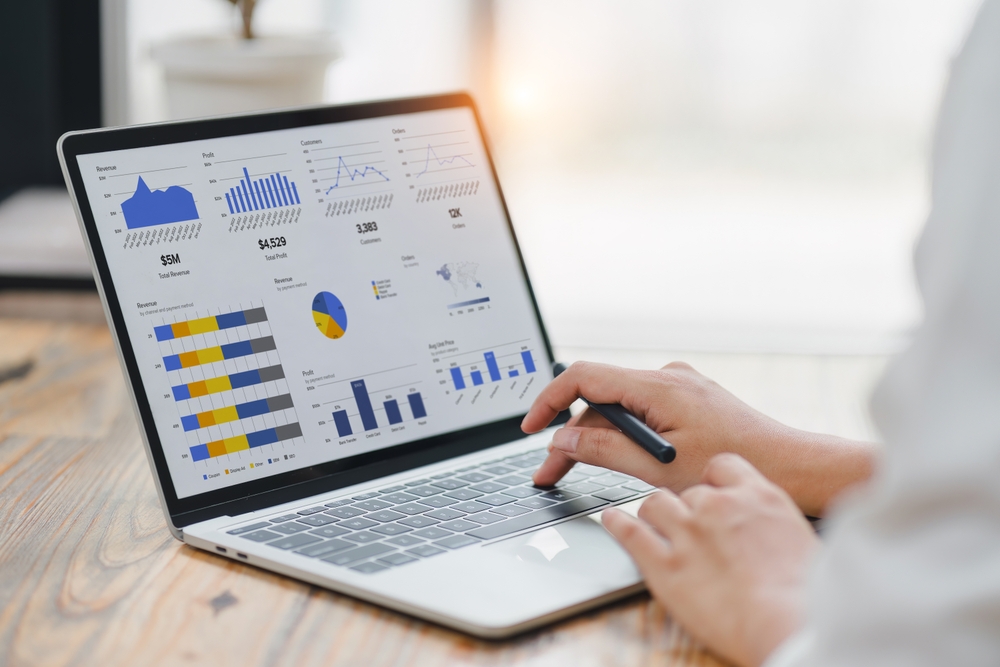Intro 0:04
Welcome to another episode of Ecom Experiences, a podcast for ecommerce marketing leaders who want to grow and scale their brands faster. Join us as we interview some of the smartest brand founders and marketing leaders in the industry. Explore the lessons they learned, discover the keys to their success and discuss what excites them most about the future.
Samir Balwani 0:31
Hi, it's Samir Balwani Here a host of Ecom Experiences where we talk to brand founders and marketing leaders about their experiences growing brands. This episode is brought to you by QRY. QRY is a paid media agency that helps brands balance brand awareness and performance marketing to drive predictable and profitable growth. To learn more about how we can help you visit. Weareqry.com, I'm really excited about our guest today. We have Katie Buczek the Senior Account Manager, senior national account manager at Totes Isotoner here. She's super smart. Has a lot to share and excited to have you. Thanks for coming.
Katie Buczek 1:06
Hi Samir, thanks for having me.
Samir Balwani 1:08
I'm so excited to chat, because there's so much to unpack, and the brand is something I think touches a lot of people. So can you tell us about the brand, what the product is, how you got started there?
Katie Buczek 1:20
Sure, of course. So I'm with Totes Isotoner, and we are the world's leading manufacturer of umbrellas, slippers and gloves. Our business has been very strong. We've got three very strong, nationally regarded brands totes, which has a long history in umbrellas, Totes also has developed rubber footwear, which we'll talk about with our own proprietary technology, which has been very interesting. Our isotoner national brand is known for comfort footwear, meaning slippers, so women's and men slippers as well as gloves. And we've got a super rich history and heritage there with that product. And then our acorn slipper brand is a premium slipper brand, definitely a little bit more niche, and we resonate well with the outdoor consumer and also a very strong ecommerce brand. So yeah, so very exciting products there. There's
Samir Balwani 2:18
a lot, a lot going on, all different like almost categories, different consumer sets, it seems like different pain points. So tell me, what's your favorite part about the role, knowing that it spans so much.
Katie Buczek 2:35
My favorite part about the role, there's always something new to kind of take on. So obviously our q4 is, you know, traditional October, November, December is extremely important to us. We do the great majority of our business there. So it's extremely busy and lots going on. But then once you get through that, a lot of the country has had pretty cold January and February, at least in 2024 we did, so we can still see a nice long tail of business when it comes to gloves and even slippers then and then we quickly get into the warmer months where we've got, first of all, the country can have typically heavy rainfall in the spring, so we can see a lot of demand for umbrellas. And then, like I said, with our sandal product that we've got in totes, that's been a really nice win in the months that we're currently in, so the spring and summer. So seeing some goodness there has been very exciting.
Samir Balwani 3:28
That's really interesting. I love the business because it is so dependent on weather. And I'm kind of curious, is it dependent on the expectation of weather, or or is it weather so is it if it rains for three days in a row, do people start to buy umbrellas, or do they see the weather forecast and buy them that? And I'm kind of curious about Yeah,
Katie Buczek 3:52
we obviously are extremely weather dependent, and so most everybody at Totes Isotoner is like an expert on the weather, which is kind of cool and a little bit nerdy, but that's okay. We like it. Um, when it comes to what we see with consumption, it's usually very close in, um, more interesting. So if we have, like, June, can be a typically very rainy month, and so it's, it's typically quite close in that we see consumption, but depending on kind of like, what we've done with advertising, what we've done with marketing, what we've done with our communication to consumers, we can get early demand based on kind of what they're calling for the weather. So for the holiday season and the winter of 2023 you know, into early 2024 they predicted a very cold winter. And we did get the cold, but it came late. It came pretty much after Christmas. But our glove demand in ecommerce was strong, basically, October forward, and it's not cold on October, yeah, it's usually lovely 50s and 60s for a lot of. Country. So that was, was really a strong push for us. This coming, actually almost starting very soon here in 2024 through about September and October, they're predicting an extremely impactful hurricane season, which obviously is very, very serious, and we see major demand for umbrellas when we have a strong hurricane season. When I first started here 10 years ago, I was like, aren't people worried about batteries and bottles of water? Why are they buying umbrellas? Yeah, but it's, it's absolutely something we see very, very strong demand for. So we're working with our retail partners now to make sure they've got inventory, you know, remind them make sure to pull it out into the front of the front of the floor, for brick and mortar locations, and then, obviously, for ecommerce, making sure that we've got our spend allocated appropriately, inventory allocated, all of that kind of thing. That's
Samir Balwani 5:55
really interesting. And then on. So I know that that's like umbrellas, but what about the acorn side is that, does that follow kind of the same path as well?
Katie Buczek 6:03
Acorn would follow more with slippers. So that's, that's the comfort footwear there. Slippers aren't quite as dependent upon having a very cold winter. We'll see, you know, some, some peak from that. But slippers also make such a great gifting. You know, beautiful special gift for you know, your mom, your wife, whoever. So it's not quite as weather dependent for both apron slippers and ice Turner slippers.
Samir Balwani 6:32
That's so interesting. I love the nuances amongst each brand. Most a lot of marketers have like their one brand, and then are able to break up segments and find nuance within and you kind of have this umbrella of umbrella of brands that you have to manage and understand the consumers within each I'm really curious. You know, I'm sure, with everything, there's a lot of challenges. What are the biggest challenges that you're managing right now or fueling the pressures of
Katie Buczek 7:05
Sure. So a couple of big items in terms of challenges right now, definitely tons of competition on the platforms, and speaking and thinking specifically of Amazon, lots of random brands out there that are not nationally known brands, but are very, very competitive in our space. So be it umbrellas and slippers gloves, it's always been a dog bite. Seems to get even tougher and tougher and tougher with every single year and every single season. CPCs, you know, get really high and trying to figure out, how are we going to scale our spend and make sure that we're reaching all of the different audiences that we want to when there is so much competition, so kind of as a counter to that, one thing that we've found that's worked, that isn't something that we that we leaned into as much historically, has been promotions. So really making sure to lean into various Amazon events, even their smaller events, like they have their Memorial Day sale that went on. They had a Mother's Day. They had their spring days back in March or so. So leaning into those has brought some goodness and some some volume that we wouldn't have expected and hadn't, hadn't really played there before. So kind of leaning in a little bit and seeing some of that work and take off some of the pressure from all the competition has been very, very helpful.
Samir Balwani 8:33
And how do you guys balance the Amazon sale going on sale on Amazon, versus your wholesale partners, versus your E com, your DTC, business itself, when you go on sale on Amazon, is the expectation that you're kind of on sale everywhere, or is it very multifaceted?
Katie Buczek 8:52
It is multifaceted, you know, and obviously we've got to be very careful when it comes to segmentation and and what's going on in various channels. So we've worked closely as a cross functional team among both the sales people and with leaders to to make sure that we can grow in each of our retail partners, but also not great conflict. So it's not easy by any means, but, but it's something that's that's extremely important to the organization,
Samir Balwani 9:21
because I would imagine that channel conflict is probably a major issue for you, and especially with just the amount of distribution you have and the ease of finding a tote umbrella so and it is interesting, because I'm in I'm outside of New York. I'm in New York all the time, and I'm not carrying an umbrella, but it'll start raining, and I'll pop into a CVS or Walgreens and grab its umbrella, and now I've got it. E comm requires us to be really forward thinking and say, Hey, I actually really need an umbrella. So how do you create that mind space? How do you. Look at how are you guys building that demand? Are you even building that demand? Are you kind of taking advantage of the demand that exists already?
Katie Buczek 10:08
We are working to build the demand, and we're also working to drive people across, across categories within our brands. So thinking on totes, for example. If we already have the shopper when it comes to umbrellas, you know, introducing her to our everywhere, footwear, everywhere, sand, proprietary technology that is extremely durable but also extremely lightweight, machine washable, excellent for the whole family, really. And then when you think about isotoner, some shoppers know us as gloves, and they don't know that we first and vice versa, even though we've been doing both categories for a very long time. So there's work that that we've done, and we need to do more of it this coming fall, in terms of introducing her to the various categories within the brands, we work closely with our partners to analyze our AMC data and make sure you know, kind of where is she in that path. How much does she, you know, where does she see us? How does she know about us? So I know that there is more work that we can be doing there that we're leaning into for this fall.
Samir Balwani 11:24
That's awesome. Yeah, it's always interesting, because there's so much opportunity when you have really good distribution to quickly get people into the ecosystem and then cross sell them into new opportunities or introduce them. It's always education that almost seems like it's the biggest opportunity of just did you know we have this, right? Yeah, the assumption a lot of marketers make is people think about our brands all the time, but the reality is that they're almost never thinking about your brands until they really need it. It's a very subconscious thing, right?
Katie Buczek 11:58
And then I'm also so curious too, when we do see a pop in something. For example, we've got a garden clog type product within the totes, or technology that's that's really popped. And it's like, how are people discovering this? Like, I'm so, you know, really digging into that. What is it that that's driving people to this? PDP, so different things like that that are so fascinating within the ecommerce space, and make it fun. Yeah,
Samir Balwani 12:27
it's always what. Why did this happen? So we can do it again, right, right. How do I keep doing this over and over again? That's like, something blows it out of the water, and then you're like, oh, we should do that again. But nobody knows what happened. Just sitting there going, we don't know how to do it again. It was just a perfect storm of everything kind of coming together.
Katie Buczek 12:52
Perfect storm of, like, the vine reviews just hit, and the weather was cold, and, like, all of this kind of stuff just happened, like, this beautiful storm. But it all has to be there. You know, you can't just have really straight, strong reviews and, you know, the inventory is not stock or whatever, or the price is too high. It all has to be this perfect symphony. So it's a lot of work.
Samir Balwani 13:15
Yeah, I think that that is the piece that a lot of marketers really undervalue. Is just how the conversations always All right, well, what's the lever we're going to pull? Now I know there's no single lever. You are, to your point, a conductor, and everything needs to work together. So it's not what is the single lever we can pull? It's, what are all the levers we can pull? As a media agency, we always get asked. The answer is always, oh, just put more money into it. Put more money into it. It'll be fine, like, but you don't have inventory, or your conversion rate is really bad, and it's just you guys are, like, people are just coming to the site and leaving. Or the worst is no one cares about your product. Like, you guys ought to rethink, like, what's going on, right? And so it really, I think that's the hardest part about being an ecomm is you are the tip of the spear in terms of just insights into what is in the market, right for brands, the ecomm team, the DTC team generally, has the most information about how the market the quickest information around how the market is reacting to the brand and its products, because it's not sell to wholesale, get into wholesale, find out what sell through from Wholesale is, and then months later, know what's going on, right? And I think that that is a unique and exciting position for a lot of people,
Katie Buczek 14:37
for sure, for sure. And you know, on our DTC platforms, as well as Amazon, we get, obviously, really strong data that we don't get from some of our other e com partner, the traditional brick and mortar accounts that also have e com we just don't get, like, glance views and by day sales and all of that kind of stuff that really helps conversion, etc, that really helps us under. Stand what is working, what's not working. Where can we improve? So being really agile with with understanding that data and how to translate it up or share it up is really critical.
Samir Balwani 15:11
Yeah, I think that translate it and share it is the hardest part of that is really peeling back what matters and what doesn't matter, because we can all get inundated with data and find a story wherever there is a story,
Katie Buczek 15:25
for sure, for sure, but and I say at the same time we get I know that I've done this myself, I get really comfortable with the data that I have, and so that I'm I sort of sometimes ignore other data that we should be looking at, and so constantly kind of evaluating. Let's think about the metrics that we look at, and are they still the ones that we should be looking at, or is there something else that we should be thinking about? So there's never you're always learning. You're absolutely always learning.
Samir Balwani 15:54
And that's a great point. So how do you look at your data, and how often are you revisiting your data in terms of, are we looking at the right metrics? Is there a set cadence, or do you have a score card that you say that like, you know, our agency runs on Eos, so we've got an EOS scorecard that we monitor, and that's our like, day to day. But I know a lot of Ecom managers will look at their P and L's, and that's like their their go to for what's performing well. But how are you looking at your data, and how are you shifting it over time?
Katie Buczek 16:28
We look very closely at our data in terms of consumption, so commitments into our retailers, but also consumption. So I mean, I'm in the data daily looking at what's going on, really, for the previous week, and the previous, you know, period, and what's working what's not. Do we have enough inventory? Do we have where we would spend all of those different pieces? It's probably more when I get together with other colleagues in from various companies and just sharing learnings. You know, recently, I was at an event and hearing a lot about a cost and thinking about tacos. And we don't really my organization, we don't really talk in terms of tacos, but I want my team to be thinking about that and be thinking about how the is, are those measures that we should be looking at regularly? Probably yes, and sharing those up for sure, just kind of getting ideas from other folks in the space,
Samir Balwani 17:28
yeah, yeah. I think education and long term learning is always an opportunity that's awesome. So we talked about a bunch of things around challenges, and tell me what you're most excited about for then the year ahead. There's so much going on, and it is definitely an interesting year.
Katie Buczek 17:51
What am I most excited about for the year ahead? I would say we had so when we we think about our year here at tote isotoner, we're we're close to kicking off our next fiscal year, which, which starts on August 1. And it's kind of nice that we start off our new fiscal year going into the fall season, because it is our peak season. So there are so many learnings that we had from the year that's that we're closing out. And we did have a very strong holiday season, especially in ecommerce, so thinking about what worked, and also knowing that we've really dialed it into what works. So influencers are something that performed well for us. Didn't lean in. You know, our strategy is to lean in kind of slowly and make sure that we test and learn. So knowing that we're leaning further this year based on learnings from last year, thinking about the Amazon high velocity events that are coming up, and what we've got you know that we're preparing for with that new product launches, new innovation that's coming. We had some really great success with new product launches and fiscal in our fiscal closing, excuse me, so thinking about that for the upcoming year is super exciting, and then just kind of the continued, like, like we said, like, some of the continued, always learning, that's
Samir Balwani 19:11
amazing. Yeah, I, I think this year will be really interesting. There's a lot happening. It's, it's kind of nice that you guys have an August fiscal year, because that kind of makes it easier to plan to be on.
Katie Buczek 19:24
Yeah, it does make it nice. And it's sort of like, if you you know that if you've had a strong first half of your year, that it makes it easier to kind of get through the spring, or if it's been softer than you wanted, then you really got to, like, kick it into high gear in the spring to help make up. So it's a very kind of different mentality, but, but for our business, it's something that I really appreciate.
Samir Balwani 19:48
That's awesome, that's amazing. Alright. Well, my last question for you is, you've been a marketing leader for a while. What advice would you give a new market? Big leader, someone that's just stepping into the role.
Katie Buczek 20:03
Advice I would give to a new marketing leader. I think you've got to be really tenacious, especially when it comes to ecommerce. You can't just take something at face value. You really have to begin to do why is this happening? What's going on? You've got to get very strong with your analytical skills. And another piece that I would say is that you've got to be humble. You've got to understand that. I mean, just a few weeks ago, there's something that one of our agencies pointed out to me, and I was like, like, mind blown, like, I've been doing this for 10 years, and I had no idea that that this particular, this particular learning was there. So just kind of the humility that that there's so much nobody's an expert in this. You can be very, very in it, but there's always something that that everybody is learning. So that humility of, I know this, but I got to be open to what else might, might have been impacting X, Y and Z.
Samir Balwani 20:59
Yeah, it's so true, and it's that tenacity to keep peeling the onion to figure out what's underneath it and why, and ask why, and ask why, and that's why, especially in a world where I mean consumer behavior is erratic and irrational at times, and trying to make sense of it and figure it out is something that you just have to constantly learn and explore and and marketing is forever changing, right? It's cool. So Katie, thank you so much for joining us today. If someone wants to find you online, where can they find you?
Katie Buczek 21:37
LinkedIn would be the best place to find me.
Samir Balwani 21:40
Awesome. I'll add that to our show notes for sure. Thank you again for coming on.
Katie Buczek 21:45
Thanks Samir.
Outro 21:48
Thanks for joining us. If you liked it, remember to subscribe, so you'll be notified of new episodes, and if you know someone who would enjoy this show, don't forget to share and leave a review. It all helps us impact more brands. If you're looking to improve your paid media, go to weareqry.com, and schedule a consultation. We're always happy to chat, see you for the next one.





